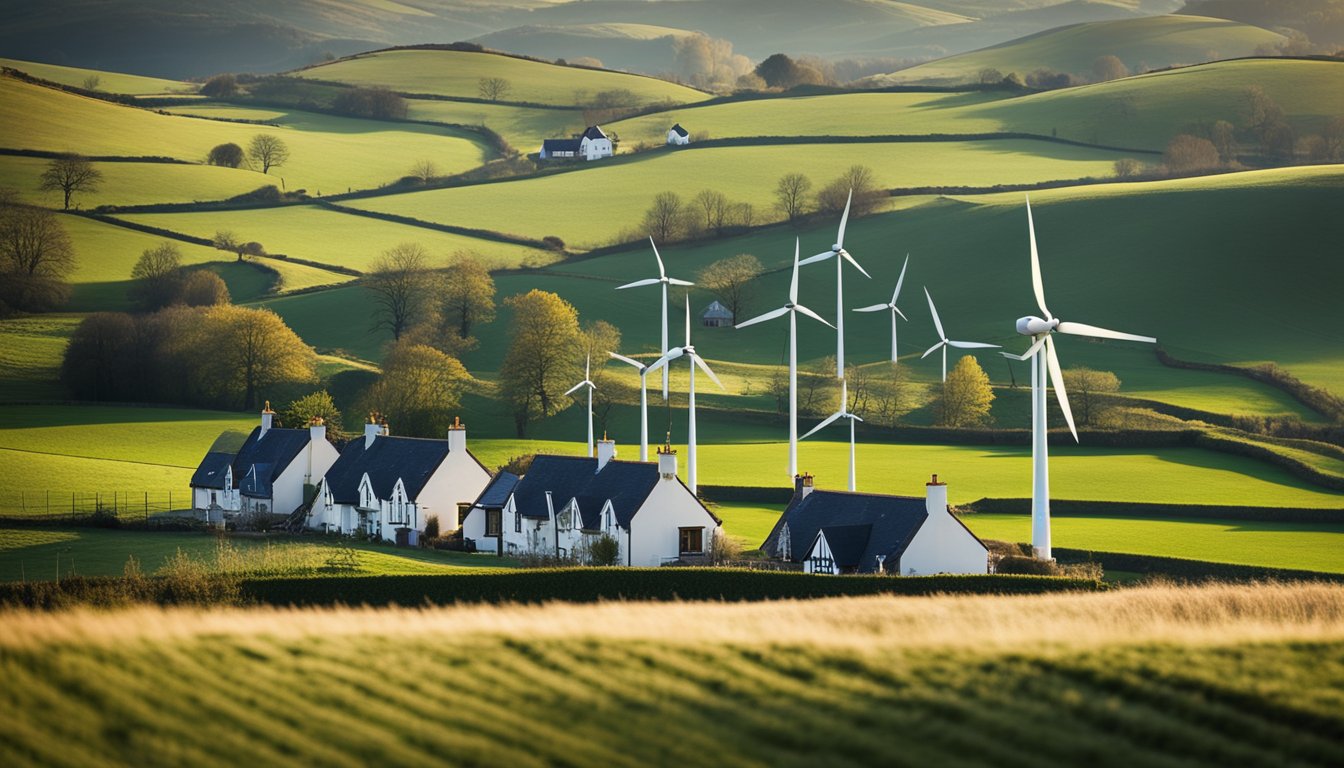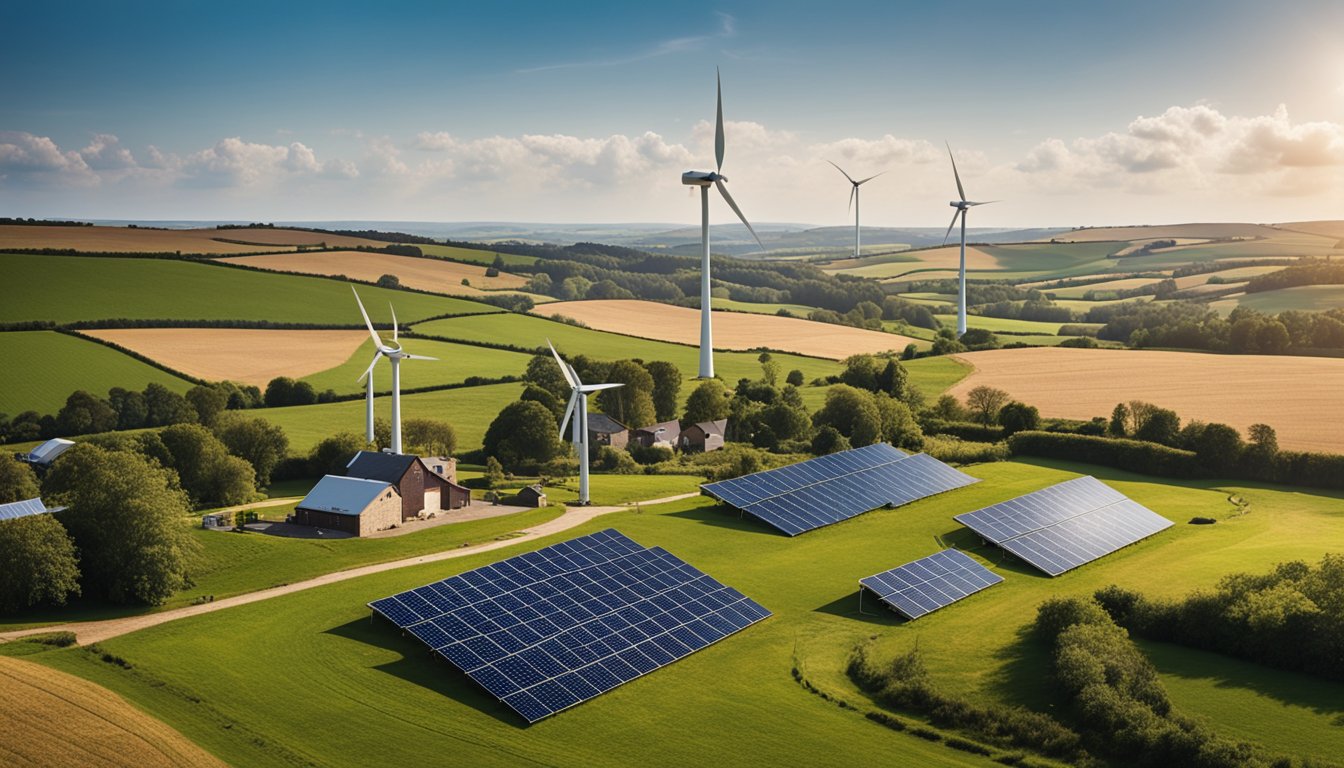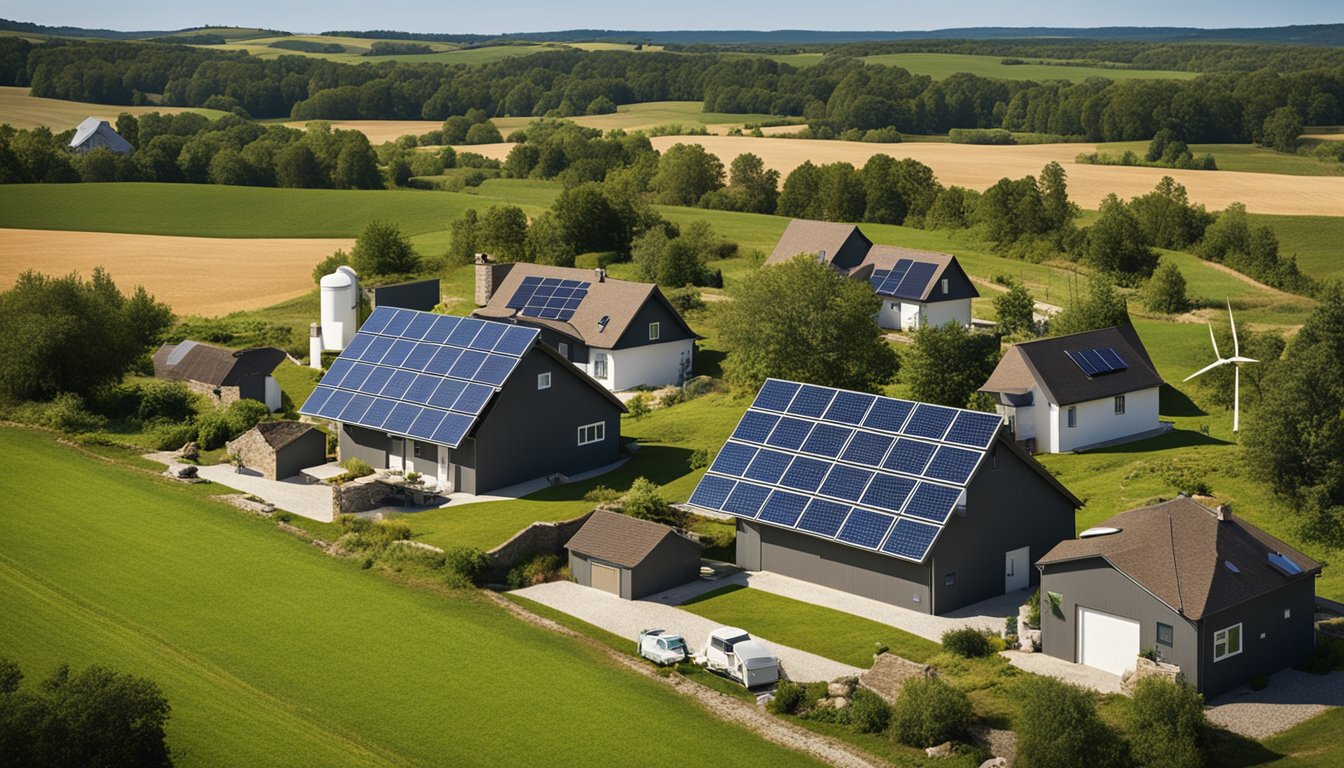Late updated: 07 Mar 2025 12:03
Written by: Oliver Bennett
Innovative Energy Solutions For Rural UK Communities: Transforming Local Power Systems
Rural communities in the UK face unique energy challenges, often contending with outdated grid infrastructure and a dependency on traditional energy sources that contribute to higher costs and environmental impact. This creates a critical need for innovative energy solutions tailored to these communities. Investments in renewable technologies like wind turbines, solar panels, and battery storage can transform rural energy landscapes, enabling communities to become more self-sufficient and resilient. The possibilities of custom energy approaches are promising, especially as they offer a way to integrate multiple renewable sources and energy storage solutions.

In regions like Ceredigion, adapting energy solutions to specific needs such as milking equipment and water heating is essential. By leveraging these tailored approaches, rural areas can not only power essential equipment efficiently but also take significant steps towards decarbonisation. The potential to reduce energy bills while enhancing mobility and resilience in rural spaces is an exciting prospect that encourages sustainable development.
We stand on the brink of an energy transformation that can empower rural communities to embrace cleaner and more sustainable futures. As we explore these possibilities, it is evident that technological innovation is not merely beneficial but necessary for the progress of rural UK energy systems. This post will delve into the strategies and technologies that can support this crucial shift.
Key Takeaways
- Innovative renewable solutions are key to rural UK energy transformation.
- Tailored energy solutions can significantly improve efficiency and resilience.
- Embracing technology is essential for a sustainable future in rural communities.
Challenges and Opportunities in Rural Energy Transition

In the rural UK, transitioning to sustainable energy systems presents both challenges and opportunities. We explore the specific energy needs of these communities, available renewable resources, and the effect of greenhouse gas emissions. Each topic offers crucial insights into shaping energy strategies that are both effective and meaningful.
Assessing Energy Needs of Rural UK Communities
Rural energy needs often differ from urban environments. Smaller populations and dispersed settlements mean many residents lack access to robust energy grids. Transport and infrastructure limitations add to the complexity. Reliable, affordable energy sources are in high demand. Understanding these needs requires a tailored approach.
Community involvement is vital for identifying actual requirements. Energy audits and surveys help determine consumption patterns and future demand projections. By integrating local input, we can develop bespoke solutions that suit the unique character of rural areas. Innovation in energy storage and microgrids plays a key role here, bridging gaps and enhancing resilience.
Overview of Renewable Energy Sources
Rural areas in the UK hold significant potential for renewable energy production. Offshore wind, solar panels, and biomass highlight the sustainable options available. Despite their promise, there are obstacles. Intermittency in wind and solar generation is a major hurdle. Advances in technology and policy support can mitigate this.
Localised energy projects offer a model for rural sustainability. These projects often bring economic benefits, creating jobs and fostering community spirit. We see increasing interest in community-owned energy initiatives, which encourage investment and control. By focusing on relevant technologies and collaboration, rural areas can thrive within the country's broader energy transition.
Impact of Greenhouse Gas Emissions on Rural Areas
Greenhouse gas emissions pose distinct challenges for rural communities. Agriculture, a prominent sector, contributes significantly to emissions. Livestock farming and waste management practices are leading causes. Reducing emissions requires a shift towards sustainable agriculture and improved land use practices.
Climate change effects, such as changing weather patterns and increased frequency of extreme events, impact agriculture and infrastructure. Implementing adaptive strategies, like better water management and soil conservation techniques, can build resilience. Public policies encouraging emissions reduction and adaptation efforts will be crucial. By addressing these impacts, rural areas can secure their environmental and economic future.
Technological Innovations and Initiatives

In recent years, numerous technological advancements and strategic initiatives have transformed energy solutions for rural UK communities. As these efforts continue, they play a vital role in facilitating access to cleaner, more affordable energy.
E.ON Group's Role in Promoting Clean Energy Projects
E.ON Group has been instrumental in driving clean energy endeavors across rural areas. With a focus on decarbonisation, the company invests in localised renewable energy projects to reduce carbon emissions. They provide rural communities with tools and support to integrate wind and solar energy into their grids. The involvement of E.ON Group Innovation GmbH further highlights their commitment to fostering technological advancements in renewable energy solutions.
Additionally, E.ON collaborates with local councils and organisations to tailor solutions that meet specific community needs. By prioritising innovations that align with environmental goals, they pave the way for a sustainable energy future.
Case Studies of Successful Clean Energy Projects
Numerous projects exemplify the success of clean energy initiatives in rural UK. One notable example is the deployment of hybrid energy systems that leverage biomass and solar resources. These systems utilise local waste and residues to produce clean electricity for off-grid regions.
Another successful project implemented solar microgrids combined with micro electric tractors to provide power for agriculture. By addressing energy accessibility, these initiatives empower communities economically. These projects not only advance renewable energy use but also stimulate local economies.
Educational Programmes for Sustainable Development
Education plays a key role in sustainable development within rural areas. Recognising this, multiple initiatives focus on providing educational programmes to cultivate awareness and skills related to clean energy. Workshops and seminars are organised to empower community members with knowledge on maintaining and operating renewable systems efficiently.
Interactive sessions, often conducted in partnership with educational institutions, teach practical skills in energy management and conservation. By fostering a culture of sustainability, we encourage community-driven innovations aimed at solving local energy challenges. Education, therefore, not only informs but also inspires action towards achieving energy self-sufficiency.
Frequently Asked Questions

In this section, we address key queries about innovative energy solutions suitable for rural communities in the UK. We cover available sustainable options, the integration and benefits of various renewable energy sources, and essential support initiatives that enhance green energy adoption.
What sustainable energy options are suitable for remote rural communities?
Rural communities have access to a range of sustainable energy options. These include solar panels, wind turbines, and biomass systems. Each option can be tailored to suit local needs and geographic conditions. By combining these technologies, energy efficiency improves, reducing dependence on traditional energy sources.
How can wind power be integrated into energy solutions for dispersed populations?
Wind power offers an effective solution for rural areas with adequate wind resources. Small to medium-sized wind turbines can be installed to service isolated homes or community clusters. By integrating wind energy with local grids or battery storage systems, continuous power supply becomes feasible even in remote locations.
What role does biomass energy play in supporting UK countryside settlements?
Biomass energy utilises organic materials, such as wood chips or agricultural residues, to generate heat and electricity. This approach is particularly beneficial in rural settings where such resources are abundant. Biomass supports local economies and provides a dependable energy source, making it a practical option for countryside settlements.
In what ways can solar power be tailored to meet the demands of rural energy use?
Solar power can be adapted to meet rural energy needs by employing photovoltaic panels and solar thermal systems. Off-grid solar configurations work well for isolated locations, while grid-connected systems enhance energy independence. Flexible installation options allow solar arrays to be optimally positioned, ensuring maximum energy capture.
How can improvements to energy storage enhance the viability of renewables in rural areas?
Enhancements in energy storage technologies are critical for the viability of renewables. Efficient storage solutions, like advanced battery systems, help maintain a steady power supply despite intermittent generation. This ensures that rural areas can rely on renewable sources without experiencing disruptions in their energy availability.
What initiatives support the adoption of green energy technologies in isolated communities?
Several initiatives support green energy adoption in rural areas. Government grants, local partnerships, and community-led projects encourage investment in renewable technologies. These initiatives provide financial incentives and technical guidance, making the transition to sustainable energy both accessible and achievable for isolated communities.
